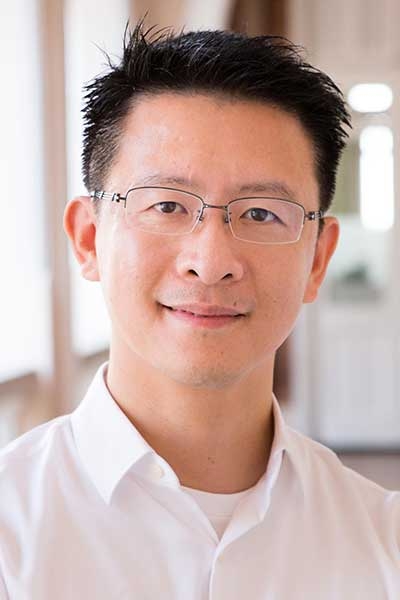Mobile edge computing for 5G-and-beyond Prof Kaibin Huang
In this talk, I will introduce a 5G paradigm in communication and computing, called mobile edge computing (MEC), and discuss how it serves as a platform for realizing edge intelligence. The main feature of MEC is to push mobile computing, AI, control, and storage to the network edge (e.g., servers near base stations and access points) so as to enable intelligent, computation-intensive, and latency-critical applications at the resource-limited mobile devices. The promised gains of MEC have motivated extensive efforts by both the academia and industry on developing relevant technologies. The first part of this talk will focus on techniques for adaptive computation offloading and the second part on techniques for edge AI building on MEC. The techniques share the theme of cross-disciplinary designs integrating wireless communications, mobile computing, and AI.
Date and Time
Location
Hosts
Registration
-
 Add Event to Calendar
Add Event to Calendar
Speakers
 Kaibin Huang of The University of Hong Kong
Kaibin Huang of The University of Hong Kong
Mobile edge computing for 5G-and-beyond
In this talk, I will introduce a 5G paradigm in communication and computing, called mobile edge computing (MEC), and discuss how it serves as a platform for realizing edge intelligence. The main feature of MEC is to push mobile computing, AI, control, and storage to the network edge (e.g., servers near base stations and access points) so as to enable intelligent, computation-intensive, and latency-critical applications at the resource-limited mobile devices. The promised gains of MEC have motivated extensive efforts by both the academia and industry on developing relevant technologies. The first part of this talk will focus on techniques for adaptive computation offloading and the second part on techniques for edge AI building on MEC. The techniques share the theme of cross-disciplinary designs integrating wireless communications, mobile computing, and AI.
Biography:
Kaibin Huang received the B.Eng. and M.Eng. degrees from the National University of Singapore, and the Ph.D. degree from The University of Texas at Austin, all in electrical engineering. Presently, he is an associate professor in the Dept. of Electrical and Electronic Engineering at The University of Hong Kong, Hong Kong. He received the IEEE Communication Society’s 2019 and also 2021 Best Survey Paper Awards, 2015 Asia Pacific Best Paper Award, and 2019 Asia Pacific Outstanding Paper Award as well as Best Paper Awards at IEEE GLOBECOM 2006 and IEEE/CIC ICCC 2018. Moreover, he received an Outstanding Teaching Award from Yonsei University in S. Korea in 2011. He has served as the lead chairs for the Wireless Comm. Symp. of IEEE Globecom 2017 and the Comm. Theory Symp. of IEEE GLOBECOM 2014 and the TPC Co-chairs for IEEE PIMRC 2017 and IEEE CTW 2013. He is an Executive Editor for IEEE Transactions on Wireless Communications, an Associate Editor for Journal on Selected Areas in Communications (JSAC), and an Area Editor for IEEE Transactions on Green Communications and Networking. Previously, he has also served on the editorial board of IEEE Wireless Communications Letters. Moreover, he has guest edited special issues for IEEE JSAC, IEEE Journal on Selected Topics on Signal Processing, and IEEE Communications Magazine. He is an IEEE Fellow and an IEEE Distinguished Lecturer of both the IEEE Communications and Vehicular Technology Societies. He has been named a Highly Cited Researcher by Clarivate Analytics in 2019 and 2020.
Email:
Address:Hong Kong, Hong Kong

